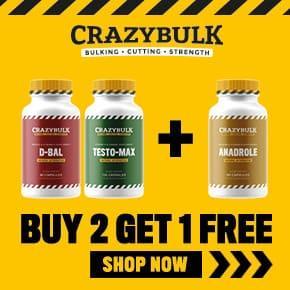You’re pushing through your final set at the gym sweat dripping determination in your eyes when you hear someone mention ll-37 peptide bodybuilding. The words stick with you as you wonder if there’s something you’re missing in your search for better muscle gains and faster recovery. Maybe you’ve tried every supplement and routine out there but the promise of a breakthrough like ll-37 peptide has you curious. Could this be the edge you’ve been searching for?
What Is LL-37 Peptide?
LL-37 peptide is a short chain of amino acids your body makes on its own. Your white blood cells create LL-37 as part of your immune system. You’ll also find it helping repair your skin and boost healing when you get a cut or scrape. LL-37 is sometimes called part of the “cathelicidin” family, which means it fights off bacteria and helps control swelling.
Many in the bodybuilding industry talk about LL-37 because research links it to faster healing and strong tissue growth. For example, a small group of athletes saw shorter recovery times after muscle injuries when testing products with LL-37, based on emerging reports from clinical trials.
You might wonder if LL-37 works like popular supplements, such as BCAAs or creatine. LL-37 is different since your body uses it for defense and repair, not simply fueling muscles. Some people use LL-37 as an injection, others as a topical cream. The most common story? A bodybuilder gets a muscle strain, applies LL-37, then hits the gym again sooner with less soreness.
Experts point out that LL-37 supports both muscle recovery and immune health, so that’s two wins if you train hard and want to avoid sickness. LL-37 doesn’t grow muscle by itself, but it can make it easier for your body to bounce back from those tough lifting days.
Thinking about trying LL-37? Many in the gym share that it feels like getting an edge on recovery. How much does it help, though? That’s still an open question since different bodies respond in their own way.
How LL-37 Peptide Works in the Body
LL-37 works inside your body as part of your immune system. This tiny peptide helps with fighting germs and keeping you healthy after tough workouts. Think about times when you pushed hard at the gym—LL-37 helps support your body’s natural repair process after those workouts.
Mechanisms of Action
LL-37 helps fight bacteria and viruses. Your white blood cells make LL-37 when you get a small injury or sore muscles. It tells your body to get rid of germs trying to get in. For example, after a tough leg day, your muscles get tiny tears. LL-37 goes to the sore spot to help fight infection and tell your body how to heal faster. It also helps with inflammation, which is the swelling or heat you feel after hard sets. LL-37 keeps inflammation balanced so your muscles can repair, not just swell up and stay sore.
LL-37 can also help change how your immune system acts in each situation. Sometimes, it calls in more help, like other cells, to clean up after a hard training session. Other times, it calms things down so your body can rest. When your immune system is strong and balanced, you recover quicker and feel ready to train again.
Potential Muscle-Building Benefits
LL-37 is not a muscle builder like protein or creatine, but it could help you in other ways. If you recover faster and keep germs away, you can get back to your workouts feeling better. Some bodybuilders who've used LL-37 report fewer days out of the gym with muscle strains, quicker bouncing back after a tough week, and less soreness slowing them down.
There’s no proof yet that LL-37 gives you bigger muscles by itself. But there are stories of less downtime and quicker recovery. Imagine training hard, getting sore, and using LL-37 to help your body stay strong and bounce back sooner. That means you could keep up your routine and see more gains over time. If you get sick less and heal faster, your body stays in top shape for your next set.
LL-37 Peptide Bodybuilding: What the Research Says
Curious about LL-37 peptide for building muscle or bouncing back strong after a workout? You're not alone. Many in the gym want to know if this peptide could mean faster gains, less soreness, or better recovery. Let’s break down what the facts say.
Evidence Supporting Muscle Growth
LL-37 earns attention for its healing powers. Your body uses it to fight germs and shrink swelling. This helps you heal faster after tough lifts. Some studies say that LL-37 boosts blood flow. Better blood flow could deliver more oxygen to sore muscles. That makes muscle function feel strong and recovery smoother.
Still, there's a catch. LL-37 hasn’t been shown to directly build bigger muscles like protein or creatine does. While some people share stories about faster healing or fewer missed workouts, these are just stories. Think about that training partner who bounces back quick from sore legs—they might mention LL-37, but science doesn’t back up muscle growth claims yet.
Limitations and Gaps in Current Knowledge
Research on LL-37 for muscle growth is still fresh. Right now, there aren’t studies that connect this peptide straight to bulky muscles or more lifting power. Science has focused more on its ability to kill germs and calm swelling—not on bodybuilding results.
No expert knows for sure if LL-37 is safe or works well for muscle gains. There’s a gap—nobody’s kept track of long-term use in athletes or regular gym goers. If you’re wondering if LL-37 makes a difference, remember its main job is healing, not bulking.
Scientists are still searching for answers. Maybe one day you’ll see LL-37 in a stack next to creatine or protein. For now, the real facts say LL-37 shines more at helping your body bounce back than helping you bulk up.
Safety and Side Effects of LL-37 Peptide
LL-37 may sound like a quick way to bounce back after hard lifts, but its safety is not simple. Before you try it for muscle recovery, you should know the risks.
Potential Risks and Adverse Effects
LL-37 may cause harm to your body’s own cells. At high amounts, this peptide can damage red blood cells and skin cells. Some users in studies got side effects like skin swelling, redness, or even tissue damage. Imagine feeling better for one workout, but ending up with sore, inflamed skin for days after—worth it?
This peptide can also spark too much inflammation. LL-37 sometimes over-activates your immune system. That means you could get joint pain or stomach issues if your body reacts strongly. If you already get sick from autoimmune issues, you may flare up or feel worse after using LL-37.
There’s another catch—LL-37 isn’t approved for muscle gain. No sports doctor or supplement company has safe dosing rules for it. Everything you hear is from labs or early medical tests, not real gym trials. Using it for bodybuilding means you’d be guessing on what’s safe.
Safe Usage Guidelines
Only doctors use LL-37 right now—mainly for research. Do not try LL-37 on your own if you just want to heal faster from lifting. Examples from people who self-inject or use creams often don’t know the long-term risks.
Guidelines for safer use would mean close checks by your doctor. You’d need blood tests, skin checks, and medical advice every time you changed your routine. If you want to try any new peptide, make sure you talk to a health expert who really knows peptides.
Right now, you can’t find a trusted way to use LL-37 for muscle recovery at safe levels. Shorter, safer versions of this peptide are being tested, but they’re not sold for gym use yet. If you’re thinking about peptides for muscle building, stick to well-studied choices and keep an eye out for new science.
Remember, your health is worth more than one quick recovery. Ask questions, read up, talk to your doctor, and protect your body with solid choices.
User Experiences With LL-37 Peptide in Bodybuilding
You might wonder how bodybuilders use LL-37 peptide. Some people in the gym say it helps them bounce back faster after lifting heavy or after tough workouts. They mention fewer sore spots, less swelling, and feeling ready to train again sooner. For example, one bodybuilder shared how he used a small amount of LL-37 after pulling a muscle. He felt less pain in two days and started lifting again after five days, which seemed quicker than usual for him.
Not everyone feels the same. Another gym-goer tried LL-37 cream for sore shoulders but did not see a change. Sometimes results can differ. If you’re always looking for an edge, you may wonder, “Could this help me too?” Most people talk about using LL-37 for faster muscle recovery and better skin healing on scraped spots. They say it lets them miss fewer training days.
Some users point out downsides too. A few have talked about itchy skin, sore spots, or stomach trouble. Others felt no new energy or muscle boost at all. No one claims bigger muscles or record lifts just from using LL-37. For context, the peptide is known for helping wounds heal and supporting the immune system. These are useful if you get small cuts or want to avoid missing gym days when feeling drained.
You may see people online swapping tips, but most also warn, “Talk to your doctor first.” Did you know there’s no proof yet in studies that LL-37 can help you build more muscle or get stronger? People still trade stories and share advice, but it’s smart to keep safety in mind.
Are you thinking about new supplements to help your recovery? LL-37 peptide has fans in the gym, mostly for helping recovery and managing inflammation. You might already use protein or BCAAs. LL-37 works differently. It focuses more on healing and immune repair than making your muscles swell.
Bodybuilders say:
- LL-37 helps with sore muscles after training
- It speeds up recovery after small injuries
- It may lower how much you miss gym sessions
- No clear proof for increasing strength or size
Want to try it? Remember, use caution. Talk to a health provider to be safe. Most people stick to proven supplements. LL-37 is still new, and more research is needed for muscle building.
Conclusion
Exploring new peptides like LL-37 for bodybuilding can be tempting when you're searching for ways to speed up recovery and stay consistent with your training. It's important to balance curiosity with caution since the science around LL-37 is still developing and its long-term effects aren't fully understood.
If you're considering LL-37 or any similar peptide, make sure you put your health first and talk to a medical professional before making any decisions. Staying informed and prioritizing safety will always serve you better than chasing quick fixes.
Meet BDPT Voices: Dr. Olivia Sterling, Jackson “Jax” Fairweather, and Aria Montgomery. Together, they form the analytical and creative heart of BDPT, delving into the world of celebrity physical transformations. From medical insights to sports analysis to entertainment trends, BDPT Voices offers a multifaceted exploration that captivates, informs, and challenges readers.




